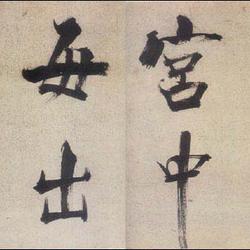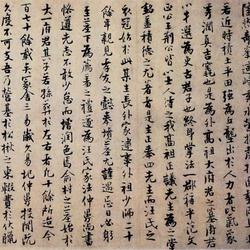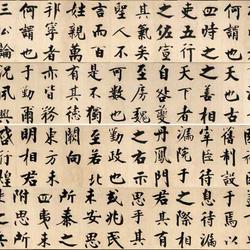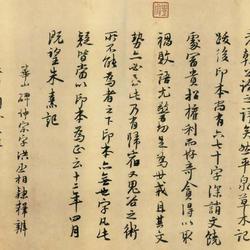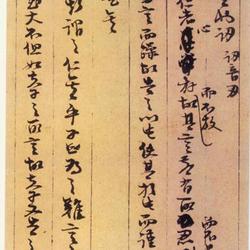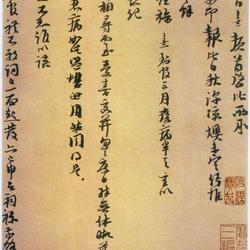"Peng Hu Hand Scroll" is one of Zhu Xi's handed down calligraphy works. Zhu Xisong, a famous Neo-Confucian, thinker and educator in the Southern Song Dynasty, has been admired for his calligraphy since ancient times. He was good at cursive writing and especially good at large calligraphy. The handed down works are mainly running script slips, with very few large characters and ink. "Penghu Hand Scroll" is Zhu Xi's representative work with large characters. It is on paper, 537 cm in width and 33.5 cm in height. The content includes three parts: inscriptions, Zhu Xi's cursive handwriting and inscriptions and postscripts by celebrities from previous generations. Zhu Zi wrote about his leisurely seclusion life in his works, revealing the noble character of this great Confucian who had a profound influence on Chinese philosophy, "use it to act, abandon it to hide it" and be content with the situation. In the inscription and postscript, celebrities from previous generations highly praised Zhu Xi's calligraphy attainments and character, and also described the ins and outs of the hand scroll's introduction to the world.
The title is "Wen Gong Bao Mo" with four characters in official script. The font is pleasing, but the name of the person who wrote the title, Chen [Note: Chen Gongyin], is incomplete and cannot be recognized. Zhu Xi died at the age of seventy-one and was given the posthumous title "Wen" after his death, so the world respected him as Duke Wen.
"Peng Hu Hand Scroll" contains thirty-five lines of cursive ink and one hundred and two characters. Zhu Xi had a profound academic background and a moral mind, and his writing was just like his own. Therefore, his handwriting was majestic and elegant, filled with the spirit of a scholar, and he was an extraordinary person. The Chinese inscription and postscript Wen Tianxiang used the "loyal minister's bone" of Tang Yan Zhenqing's calligraphy to describe the style of Wen Gong's pen. His strokes are smooth and smooth, with absolutely no traces of chiseling. However, every stroke is in line with the law, so the strokes are lively yet heavy, and the composition is natural and unrestrained. It can be called a representative work of Zhu Xi's calligraphy. The full text of the vernacular translation is as follows:
The door to the grass is closed, the well path is deserted, the ground is covered with moss, the laces of the shoes are broken, and I will no longer miss you. "Shaoping Melon"* was planted in the garden, and "Mr. Willow"* was planted in front of the door. When I get up early in the morning, I call the bookboy and ask if the mountain peaches have fallen? Have the magnolia flowers bloomed? I always hold a vat in my hand to water the flowers on time to get rid of pests and silk spiders. No towel, no shoes, sitting by the water window, enjoying the cool breeze, burning incense and brewing bitter tea. Suddenly I saw a strange bird flying and singing among the trees. When I felt a little tired, I lay down and fell asleep comfortably. I had a quiet and dreamless sleep. Even if I had dreams, I would not leave Zhuping and Chawu. Zhu Xi.
The inscriptions and postscripts on this volume include the famous anti-Yuan general Wen Tianxiang of the Song Dynasty, the great Confucian Fang Xiaoru of the Ming Dynasty, the calligrapher Zhu Yunming, one of the "Four Talents in Wuzhong", the famous calligrapher and painter Tang Yin and the famous minister Hai Rui.
There are many seals in the work, including Zhu Xi's seal [Hui Weng], Wen Tianxiang's seal [Song Rui], Fang Xiaoru's seal [Xiaoru], Zhu Yunming's seal [Zhishan] and [Yunming], Hai Rui's seal [Gangfeng], Tang Yin Seal [Tang Yin], there are also [Xuan De Imperial Treasure], [Zheng Ming], [Mei Gong], [Bada Shanren], [Shang Ren], [Shi Jun], [Heng Wang], etc. It can be said that those who are destined to watch Zhu Zi in the past dynasties Baomo's records.
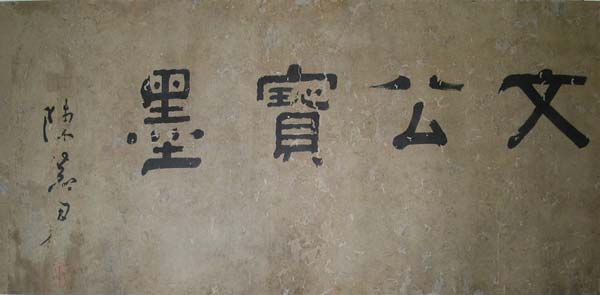
Title: Wen Gong Baomo
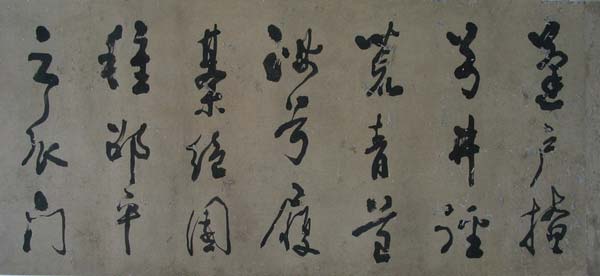
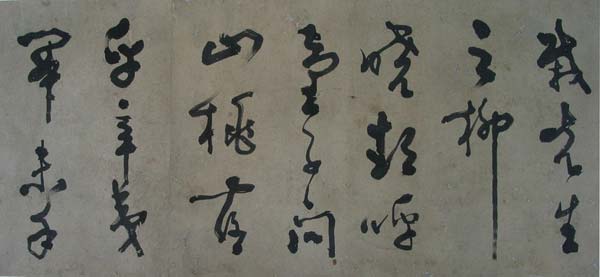
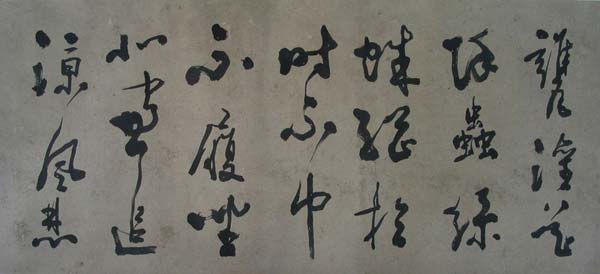
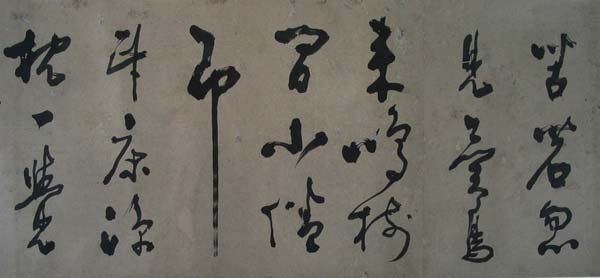
[Explanation] The roofs are covered with shackles, the wells and paths are barren, the moss is covered with grass, and Shaoping's melons are planted in the garden, and Mr.'s willows are planted at the door. At dawn, I call to the boy and ask him whether the peaches have fallen or whether the peach blossoms have bloomed. I plant flowers in a hand jar, and it's always time to get rid of insects and silk spiders. Without a towel or shoes, I sit by the water window, chasing the cool breeze, burning incense and cooking bitter tea. Suddenly I saw a strange bird singing among the trees. I felt tired and lay down. I slept on a cool pillow. I fell into a sweet sleep without any dreams. Even if I dreamed, I would never leave the teahouse in Zhuping. Zhu Xi.
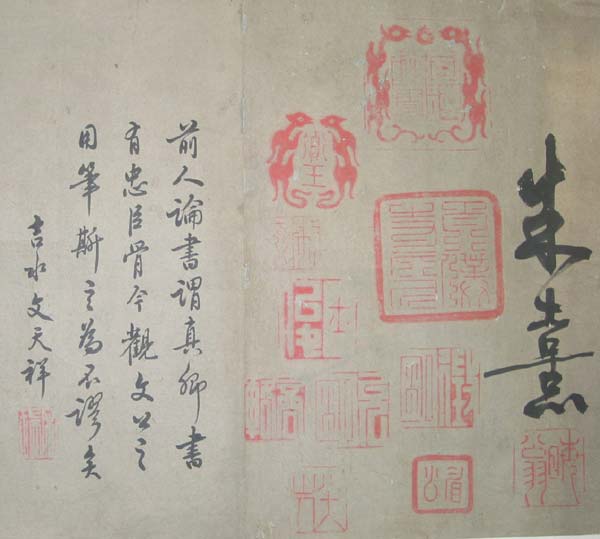
[Postscript of Wen Tianxiang] The ancients said that the true Qing's writings have the bones of loyal ministers. Looking at Wen Gong's pen, this statement is not wrong. Ji Shuiwen Tianxiang.
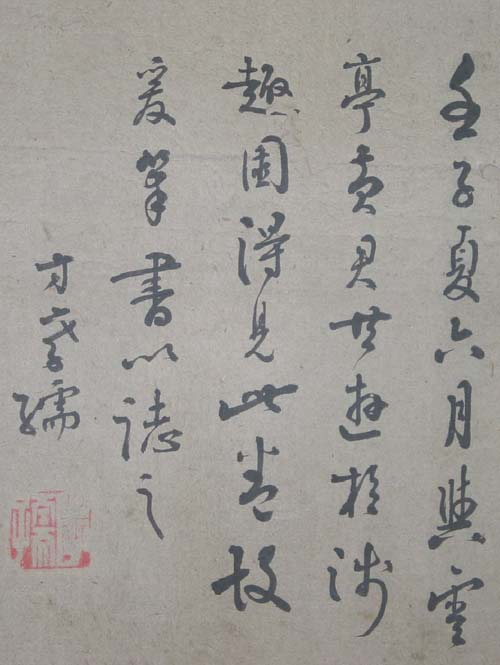
[Fang Xiaoru Postscript] Renzi Xia and Huang Jun of Lingting visited Shequ Garden in June and saw this volume, so they wrote it in writing. Fang Xiaoru.
Picture missing
[Postscript of Zhu Yunming] Mr. Hui Weng, loyal to ancient times, knowledgeable and enlightened, is a sage in the world. He has shown his legacy through the ages. However, his calligraphy is especially wonderful. He has written very few books in his life, so there are only a few of them in later generations. This volume is written by Huang Shi Sima. It has been hidden for a long time, and then it wandered around the world. When I was teaching, I only saw it once, but I didn't get to see it all, and I felt sorry for it. Fortunately, I saw it again in a friend's house, which is enough to be related to Gong's pen and ink. I used this book This is the order of things. Zhu Yunming.
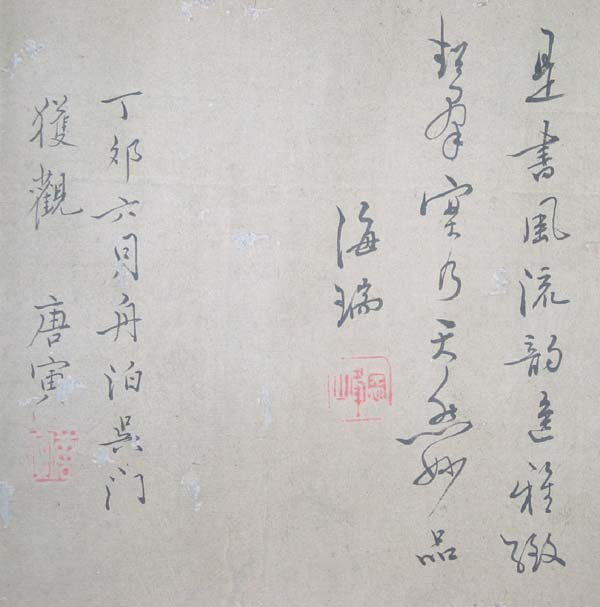
[Hai Rui's inscription and postscript] The calligraphy is elegant and graceful, and it is truly a natural masterpiece. Hai Rui.
[Tang Yin's inscription and postscript] In the sixth month of Ding Mao, the boat stopped at Wumen to watch. Tang Yin.

